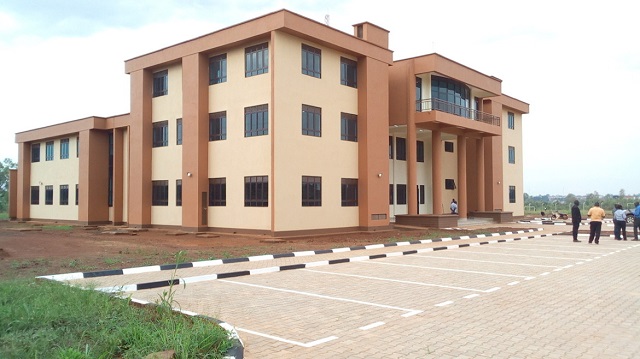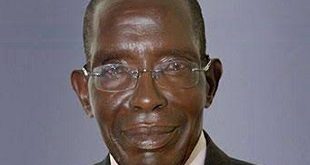
Gulu, Uganda | THE INDEPENDENT | The faculty of Bio-Technology and Pharmaceutical Studies at Gulu University is hunting for Shillings 100 million to fully operationalize its traditional medicine clinic.
In 2017, the institution initiated the traditional medicines unit to help the community get alternative treatment when the conventional medicine is out of stock. In the same year, the center also started conducting five-weeks training in Alternative medicine targeting herbalists, traditional healers and traditional knowledge holders in Acoli sub-region to provide the needed human resource for the herbal center.
The training, which covers modules such as Traditional, Complementary and Alternative Medicine; Basic Sciences; Applied Medicine; Quality Assurance and Quality Control 1& 2 has seen more than 200 people graduate. But three years after the initiative, the university has one grass thatched hut at the site and patients are treated in the office of the Pharmbiotec center head.
Dr. Alice Lamwaka, a senior lecturer in the Faculty of Bio-Technology and Pharmaceutical Studies also the head of the center, says the money is needed to set up a structure to serve as a clinic, buy furniture, motivate staff and conducting trials for various herbal medicines.
She says their attempts to get funding for the clinic has failed, adding that not many organizations are into funding traditional medicines research. Dr. Lamwaka says besides Gulu University does not have a budget for research, part of which could have been given to Pharmbiotec to conduct trials for herbs.
Dr. Lamwaka notes that there are a lot of herbs in the surrounding that can be used to treat some ailments instead of relying on conventional medicine that are not available all the time. She said basing on the University’s slogan “For Community Transformation”, they want to give back to the community by teaching them to use the environment as their pharmacy.
She reveals that what they have done in the past three years is to preserve a few species of indigenous herbs on a 20- acre piece of land opposite the Faculty of Medicine and they hope to plant more herbs when rain starts this year.
Lamwaka says since the inception of the traditional medicines program, they have treated more than 600 chronic cases of cough, diarrhea, goiter, diabetes, ulcers, hypertension, scabies and chronic wounds. She however says any patient who wants to get treatment using herbs, must first get diagnosed and present a medical report stating that they are suffering from that particular disease.
However, James Onono, the deputy Public Relations Office of Gulu University, says that Dr. Lamwaka, who is the lead investigator and promoter of herbal medicines at Phambiotec, should take it upon herself to convince the university management to consider funding the initiative.
World Health Organisation defines traditional medicine as the health practices, approaches, knowledge and beliefs incorporating plant, animal and mineral-based medicines applied singularly or in combination n to treat, diagnose and prevent illnesses or maintain well-being. It also includes spiritual therapies, manual techniques and exercises.
********
URN
 The Independent Uganda: You get the Truth we Pay the Price
The Independent Uganda: You get the Truth we Pay the Price


